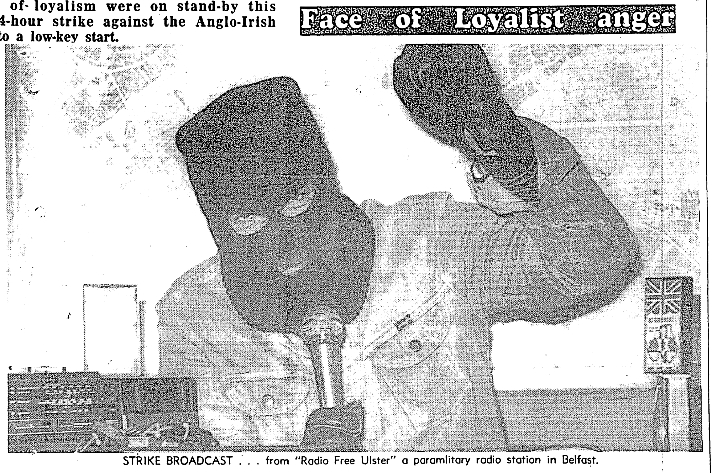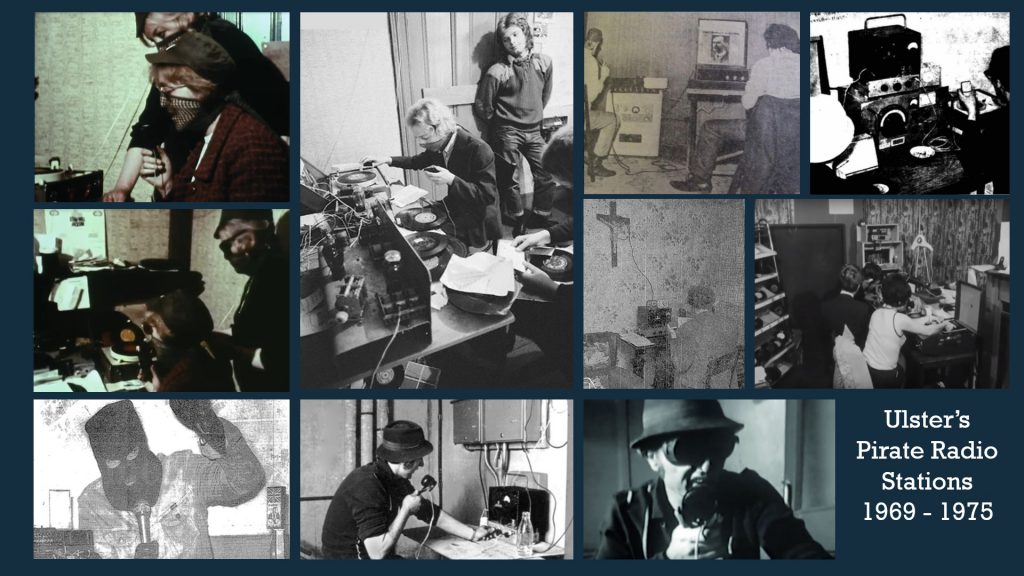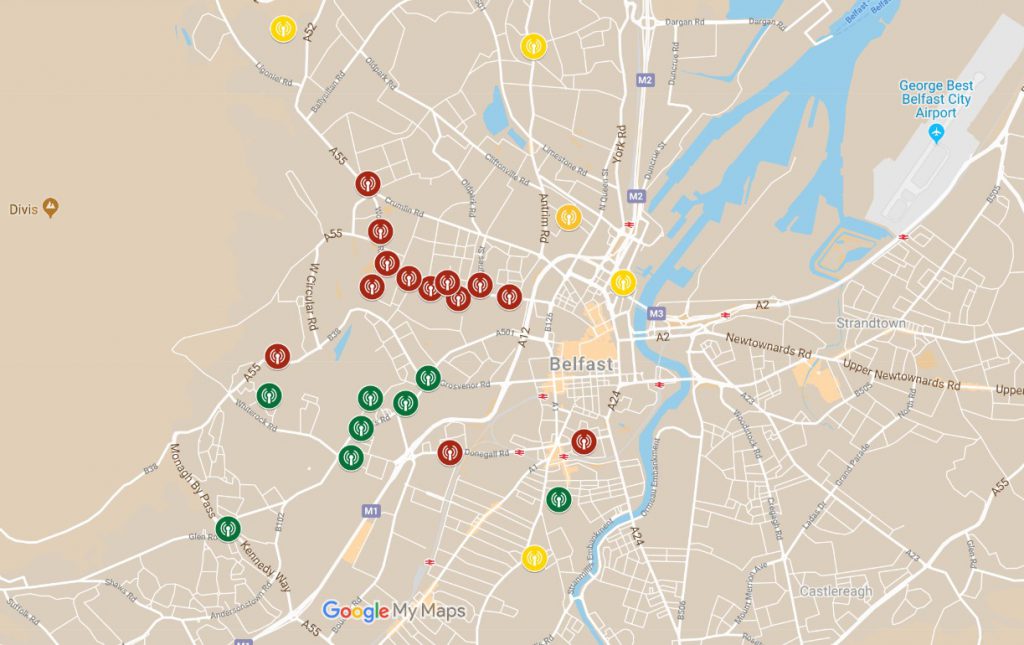Podcast: Play in new window | Download
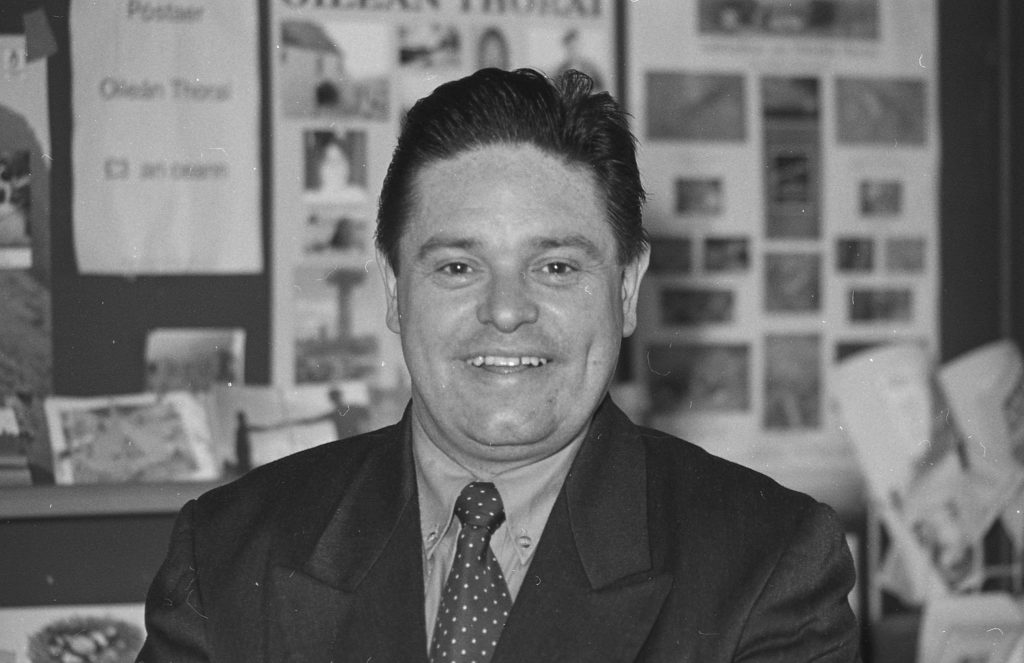
The co-founder of Belfast’s Irish language radio station Raidió Fáilte, Gearóid Ó Cairealláin, has died after a short illness. Raidió Fáilte was founded as a pirate station in west Belfast in 1985 and was part of a local media infrastructure that included an Irish language newspaper Lá. It broadcast sporadically without a licence for the best part of twenty years, aimed at the west of the city where most Irish speakers are located. Licensed by OFCOM in 2006, Raidió Fáilte now broadcasts on a community licence over a ten-mile radius of the centre and west of the city. From humble origins on the Falls Road, its impressive studios are now located close to the city centre and are arguably the best community radio facility in all of Ireland.
Tá Gearóid Ó Cairealláin, duine de bhunaitheoirí stáisiún raidió Gaeilge Bhéal Feirste, Raidió Fáilte, tar éis bháis. Bunaíodh Raidió Fáilte mar staisiún bradach in iarthar Bhéal Feirste in 1985 chomh maith leis an nuachtán Lá agus tionscadail Ghaeilge eile. Chraol sé ag amannta éagsúla ar feadh fiche bliain, dírithe ar iarthar na cathrach áit a bhfuil an chuid is mó de phobal na Gaeilge lonnaithe. Tar éis dó ceadúnas a fháil ó OFCOM in 2006, tá Raidió Fáilte ag craoladh go dleathach anois thar raon deich míle i lár agus in iarthar na cathrach. Tá dul chun cinn éachtach déanta aige ó bunaíodh é i lóistín sealadach ar Bhóthar na bhFál agus d’fhéadfaí a rá go bhfuil an stiúideó ina bhfuil sé suite anois ar an gceann is fearr dá bhfuil ag aon stáisiún raidió pobail in Éirinn.
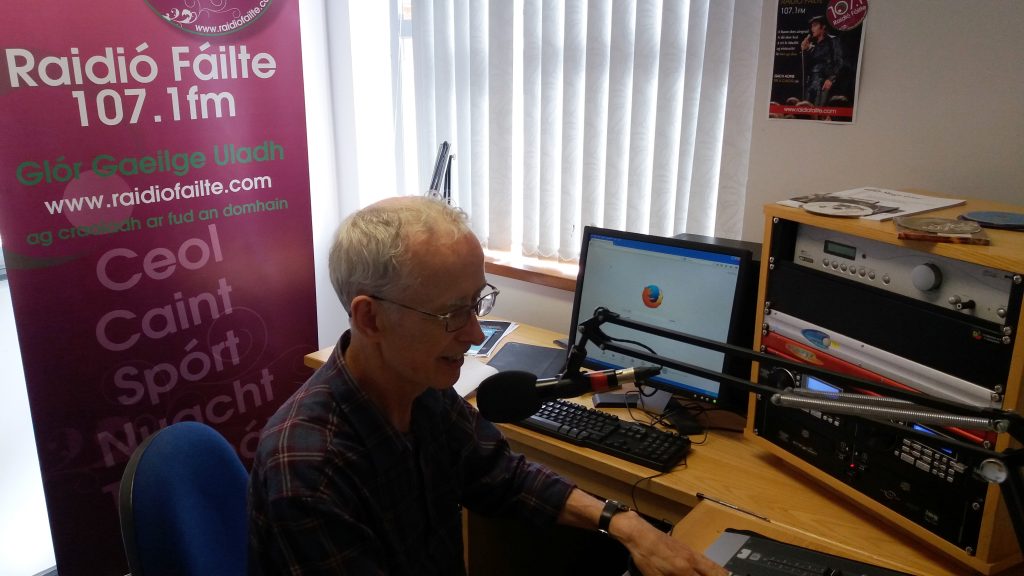
The station emerged from language activism in the nationalist west of the city in the 1980s. A group of people led by Gearóid Ó Cairealláin wanted to develop Irish language cultural activities and media based on a community development ethos. Ó Cairealláin had been influenced by earlier Irish language initiatives and he and other activists saw the establishment of local media as essential to the revival of Irish. They were aware of previous local pirates, particularly Radio Free Belfast that was set up by Republicans at the start of the Troubles, and Galway pirate Saor-Raidió Chonamara from 1970. Raidió Fáilte began broadcasting in spring 1985 on a trial basis but it and other related projects were set back by a fire in the premises. The group moved into the Conway Mill building on the Falls Road in 1986 and began rebuilding the radio and other initiatives, cycling around Ireland to raise funds. They acquired a new AM transmitter from one of the many pirate stations in Dublin and began broadcasting on a regular basis. Raidió Fáilte moved into the new Irish language cultural centre, the Cultúrlann, on the Falls Road in 1991. The broadcasts were sporadic at this stage but Raidió Fáilte returned on a more regular basis in the mid-1990s and benefited from a larger group of volunteers and a new FM transmitter.
This recording of Raidió Fáilte during its pirate days features Malachy Duffin with a musical mix ranging from traditional to classics. It was recorded in Belfast from 107 FM on 1st April 2005 between 1836-1914. Thanks to Ian Biggar for the donation. We extend our sympathy to the family and friends of Gearóid Ó Cairealláin and pay tribute to his enormous contribution to Irish language media in Belfast. We also thank Eoghan Ó Néill for sharing the history of Raidió Fáilte with John Walsh in previous interviews.
Déanaimid comhbhrón ó chroí le muintir agus le cairde Ghearóid Uí Chairealláin agus aithnímid an obair éachtach a rinne sé ar son na Gaeilge agus na meán i mBéal Feirste. Gabhaimid buíochas chomh maith le hEoghan Ó Néill as stair Raidió Fáilte a roinnt linn.

